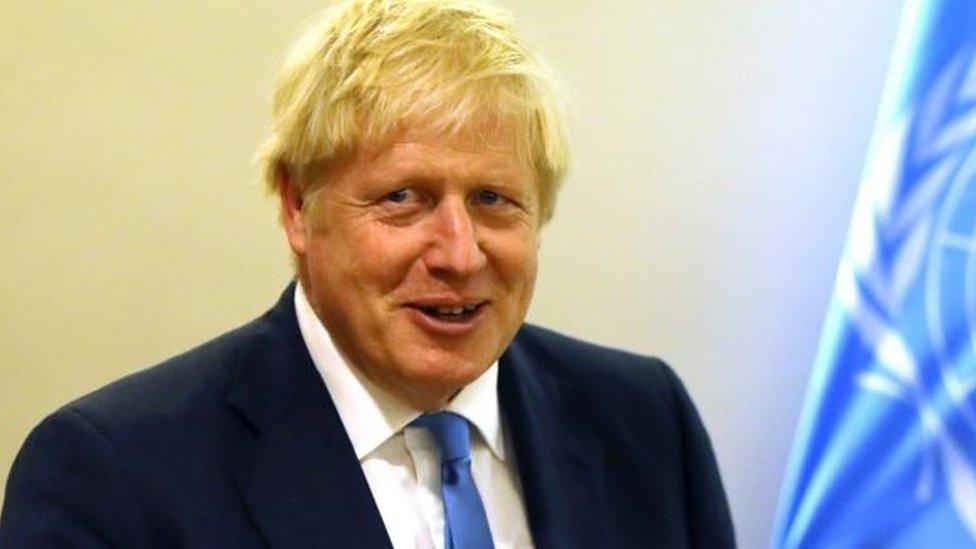Supreme Court judgement: What will Boris Johnson do now?
- Published

"He has completely lost control of the process."
That's how one of the prime minister's cabinet colleagues summed up Boris Johnson's position as he flies back to face Parliament.
Mr Johnson's likely to end up at the despatch box on Wednesday, where he will have the rulings of the Supreme Court brandished at him.
The opposition parties calling on him to quit. A flurry of urgent demands for the government to answer questions about its plans for Brexit. And all that, before the profound embarrassment of having been found to have broken the law.
Downing Street at this stage seems to have no intention of doing anything other than toughing this out.
And Number 10 may choose to promote the plot of a prime minister, battling against the mighty establishment to keep his Brexit promise believing that will appeal to many leave voters, and can tune in to the frustration many members of the public feel at political failure.
The leader of the House Jacob Rees-Mogg's team are not denying what sources told me on Tuesday night, that he described the move to colleagues as a "constitutional coup".
Another cabinet minister told the BBC: "It's interesting for justices to be giving political direction".
Indeed, it is blatant - another senior Conservative told me after the judgement: "This is now literally the people versus the establishment."
But not even every Conservative feels easy with that stance, let alone the opposition, or every one around the country.
And MPs are determined to tie Number 10 in knots, to hold up Mr Johnson's hope of relentlessly pushing forward.
Chutzpah can make the difference in politics.
But the court's verdict matters. Bravado isn't governing. Embracing controversy won't find a Brexit deal, or a straightforward way out of the mess.
And with the opposition parties still refusing Mr Johnson his election, he has to wait before his high wire act is put to the ultimate test - the judgement of every voter at the ballot box.
